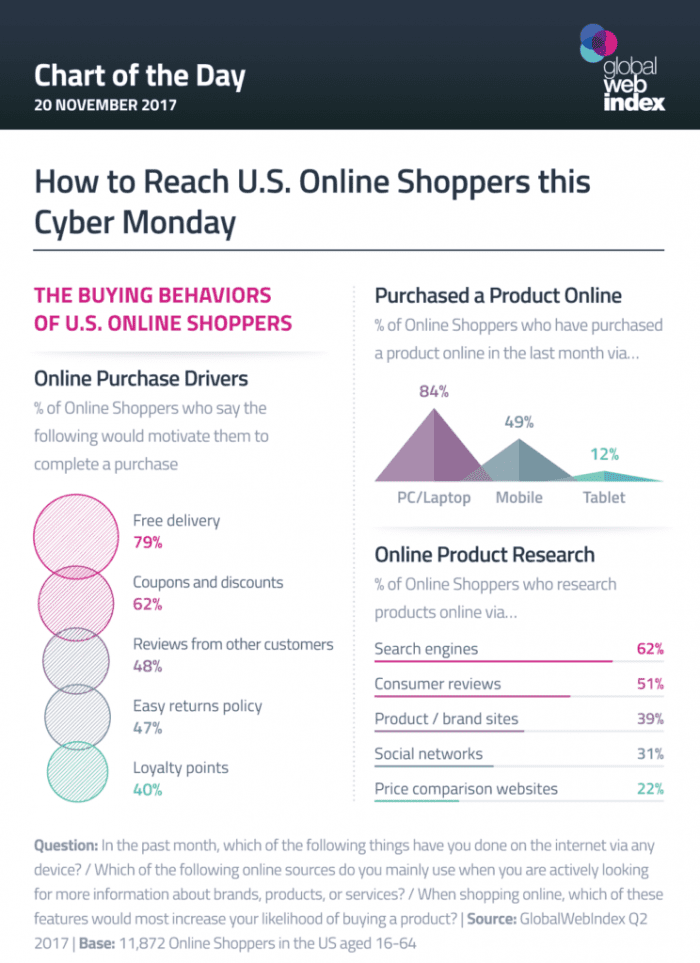Chart of the Day: Do you know how to convert your audience into buying customers this Cyber Monday?
It seems that Cyber Monday is only thought of as the 'little sister' of Black Friday, but last year Cyber Monday brought in $3.45 billion in sales.
So, how can you influence your audience to buy your products? What is it they're looking for? Sometimes offering a % off discount on products and services simply isn't enough because they can wait until discounted sales happen again for Summer, New Year or even Christmas campaigns.
Research by Global Web Index shows the features that would increase the likelihood of a consumer buying a product online.
When shopping online, which of these features would most increase your likelihood of buying a product?
79% of respondents stated that free delivery would be their main influence. Often we find ourselves buying products in online sales, but the delivery charges are almost as much as the product.
Have you included free delivery in your Cyber Monday campaign?
Unsurprisingly, loyalty points were the least important to online shoppers with only 40% of respondents stating this would increase the likelihood of them buying a product online. Loyalty points are almost always a year-long program for many stores, meaning shoppers don't have to buy your products on Cyber Monday to gain points.
Your Cyber Monday campaign needs to:
- Offer the buyer something they wouldn't get from you any other time of the year
- Offer the buyer something they wouldn't get from your competitors!
- Stand out from the plethora of sales campaigns
This might sound easy but you need to know what motivates your customers to buy. You'll only know how to do this by knowing who your customers are and reaching them where they're searching for products.
Online research and buying habits
Having a fully integrated campaign this Cyber Monday is vital in order to increase leads and have a higher number of conversions. 62% of those surveyed research products online via search engines and 49% use a mobile device to buy a product.
This means all your marketing channels need to be aligned to reach your audience where they're searching and also provide the best possible UX. Better UX means customers are more likely to stay on your site and buy your product. If your product page isn't optimized for mobile, is too slow or they can't find you on search engines this will decrease the likelihood of customers buying your product.









